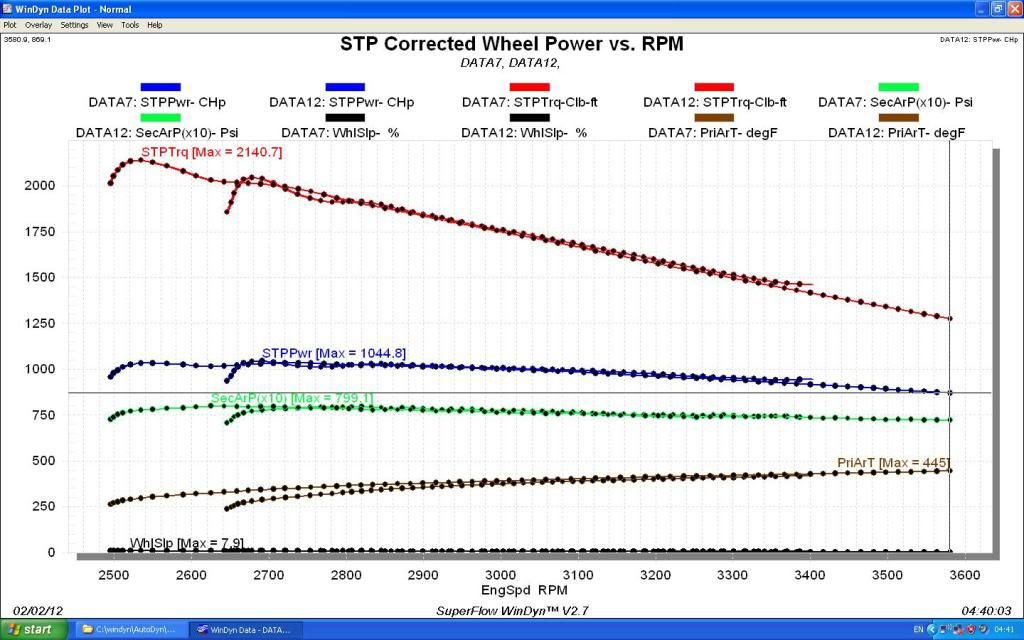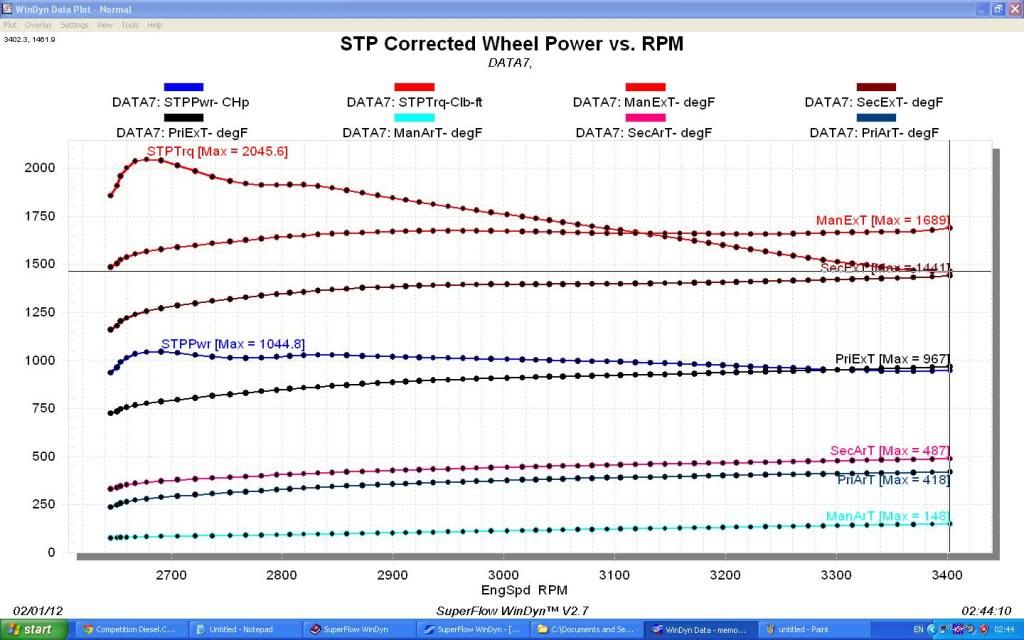I see it both ways, one from logic and one from experience.
Logical approach. The tune has to match the turbo (or any part that's changed). If you change out the compressor and a different air volume is now being pushed into the motor (temp, and boost changes), the tune may have too much, or too little timing, etc,etc,etc and may lose power or make power depending on where that base line was. I hate to say it, 2 things have to change in this case
Experience told me, due to the fact the SSR is crap, the tune that worked the best and required me to drive around it's crappieyness with the single turbo, made more power when it was used for the compounds, according to the butt dyno. The low end became so different that I bet I hit parts of maps that I never seen before. Then I turned up the fuel and look at what I have now? A truck sitting out side at some guys shop awaiting a headgasket.

Logically, the SSR is crap. So it's a moot point, kinda interesting tho.
The big question is this:
If I had the hypothetical EFI live for the 03-05, i'm sure a tune could be made to run say, 550whp with the 66 and that same tune would of netted the same with compounds. Then what? What did that prove? It proved that the fuel injected netted the exact amount of air flow required to make 550whp.
In my world, if I change out hard parts to gauge what is faster (OS kernel, network card, disk drive, switch, CPU, RAM, chip set would be "hard parts") I still need to tweak the software or my performance results would be wrong! Sure I'll run a base line with the same old settings for giggles, but I'm sure as hell not going choose based on not tweaking the software to be optimized for the hardware in place, some pieces of hardware need to have chit like buffer sizes different to do the same damn thing.
So in the end, If you don't change the software tune to MAXIMIZE the PERFORMANCE, you're doing it wrong.
Ohh and the EGT thing, yeah, I understand it to be a sign of efficiency, but I don't see it being a number to meet if the blowupmowheel runs cooler... turn up the fuel till it stops making power, or blows up, who cares about EGT.


